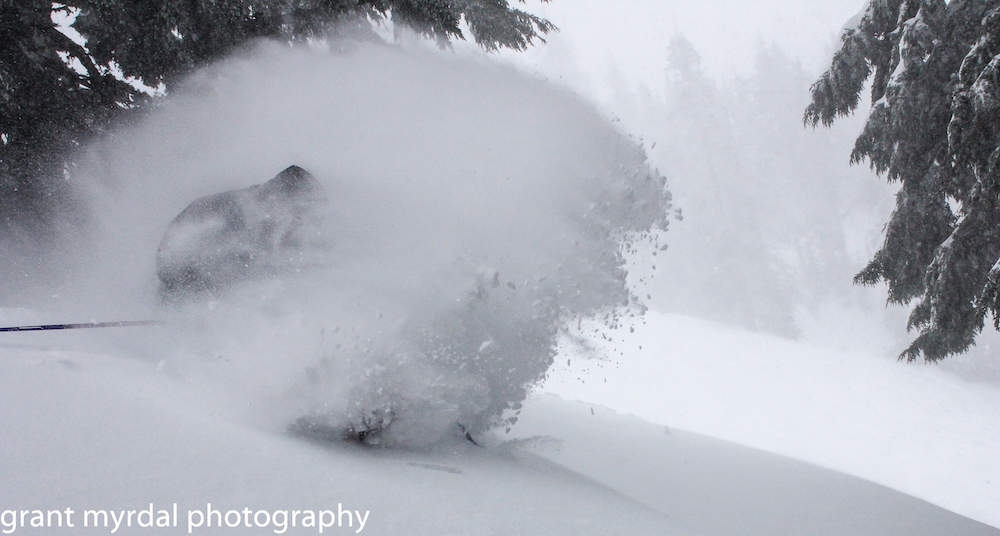Oregon ski resort operators are making a second attempt to update state laws for ski areas this legislative session after a similar bill failed to win political support last year.
Last year’s Senate Bill 849 never made it out of committee. This year’s House Bill version earned a public hearing January 15th and is scheduled for a second hearing in Salem February 11th.
HB 4077 is “basically an effort to update the Oregon skiing statute and bring it current with things that have changed since the original statute of 1979,” says John A. Gifford, President of the Pacific Northwest Ski Area Association. “Things like freestyle terrain, improved equipment, people being able to go out into the trees, skiing faster, doing things that were not possible in the past. We’re finding ourselves having to redefine what the risks are.”
Avalanches, tree wells and terrain parks all would be specifically added to the list of risks inherent to skiing and snowboarding. The updated law would also spell out the responsibilities of resort managers in a section that was added as part of ongoing negotiations between ski areas and the Oregon Trial Lawyers Association.
The other key change to this year’s bill involves liability. Last year’s bill followed a controversial ruling by the Oregon Supreme Court that rejected liability waivers as “unconscionable,” and it contained language that would have essentially overruled that decision by barring skiers and snowboarders from suing over the expanded list of inherent risks to the sport.
“We aren’t dealing with any liability issues the way we did last year,” says Gifford. “We took all that out.”
Resorts are still using liability waivers
Rather than trying to change the law about skier liability, ski areas have opted to keep using the same waivers they’ve used in the past. Racers, ski bus riders and freestyle competitors are all required to sign the waivers, and Mt. Hood Meadows gives season pass purchasers the option of either signing a liability form or else paying an extra $100.
“We didn’t change anything about our liability releases or terms of agreement,” says Meadows spokesman Dave Tragethon. “We still have people sign because we see it as an opportunity to educate. And at some point if it does come up in a legal case it could still be valid. That Supreme Court case in Oregon was addressing a summary judgement, so yes it may not be valid in that situation but in some cases it could be valid, and it is certainly a legal document that our attorneys want us to use.”
On December 18, 2014, the Oregon Supreme Court ruled that liability releases were “unconscionable” and therefore invalid in the case of a $21.5 million terrain park lawsuit against Mount Bachelor. The concept of unconscionability is meant to address several problems with contracts, including imbalance of power. The Supreme Court held that the ski resort holds far more power than the skier or snowboarder and that the liability contract clearly favors the more powerful party, the resort.
Ski resort executives warn that without liability waivers a barrage of lawsuits could raise costs and prices, threaten the economic viability of the Oregon ski industry, and cost jobs. But their pleas failed to move state legislators a year ago. This year’s updated bill focuses on the duties and responsibilities of skiers and resort managers, avoiding the controversial topic of liability.
Trying for bipartisan support this time
Montana updated its skiing statute in February of 2015, and Idaho updated its statute in February of 2014. Those updated statutes both brought in language specific to terrain parks, arguably the biggest new risk factor at ski resorts since the 70s and 80s.
Last year’s Senate Bill only drew support from Republicans. But this year’s House version is sponsored by Democrat Jeff Barker of Aloha and will be heard in the Oregon House Committee on Consumer Protection and Government Effectiveness, chaired by Democrat Shemia Fagan of Clackamas.
Meadows CEO Matthew Drake testified in favor of the bill on January 15th, along with Jeff Kohnstamm, President of the company that manages Timberline, and Mt. Bachelor President Dave Rathbun.
To read the full text of the proposed legislation, five pages in all, click here.
Last modified: January 29, 2016

